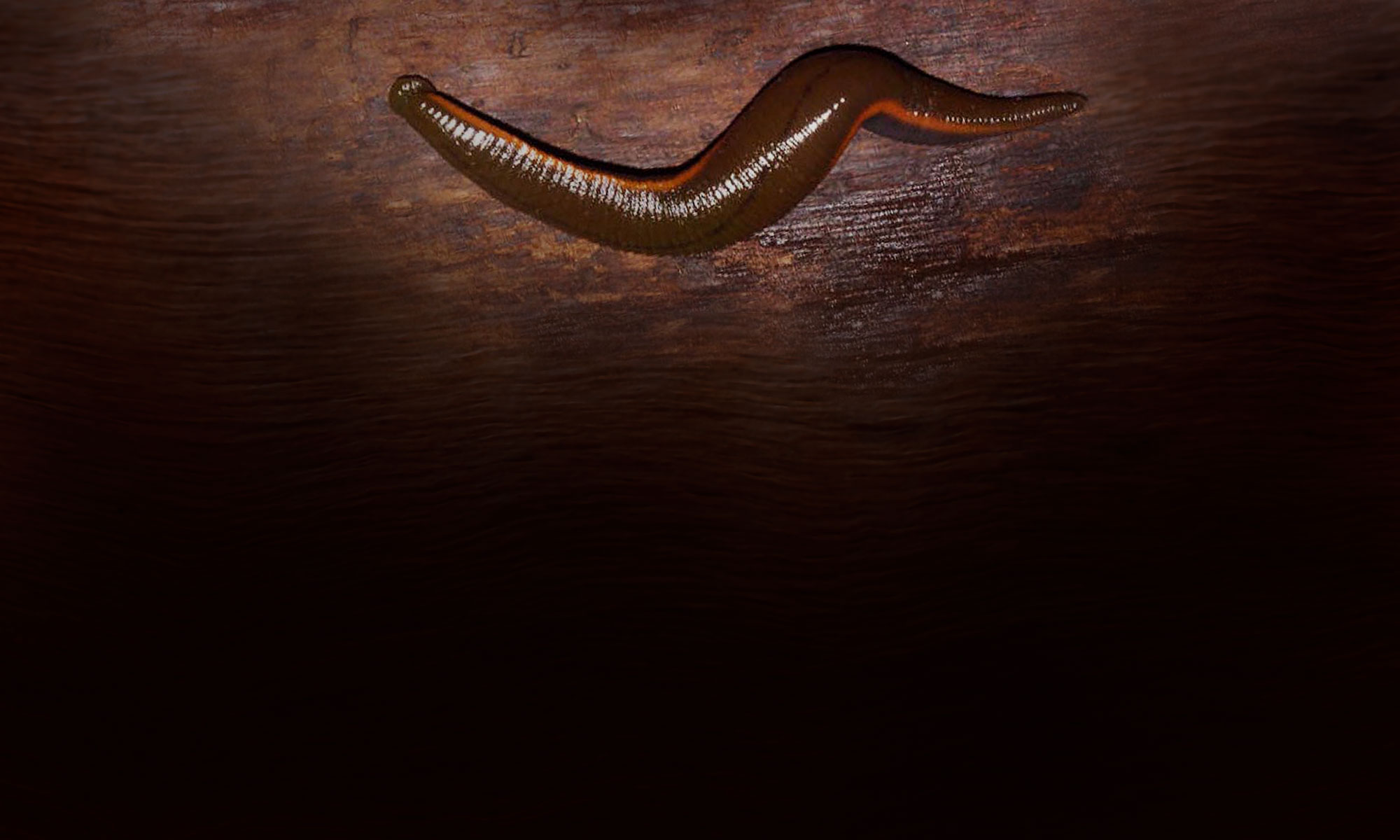The Annelida Collection at the Illinois Natural History Survey is perhaps the largest state collection of freshwater oligochaetes in the country, holding 350,000 specimens (over 7,000 lots, or collections). Approximately 225,000 specimens are permanently mounted on microscope slides; the remaining specimens are stored in alcohol in vials and jars.
With the exception of one monospecific order—Acanthobdellida (the bristle worms, restricted in distribution to the boreal regions in the Arctic)—the collection includes representatives of the other groups of worms in the phylum Annelida:
- Branchiobdellida (one family, Branchiobdellidae—the crayfish worms, including representatives of the subfamilies Bdellodrilinae, Cambarincolinae, and Xironodrilinae);
- Hirudinida (the leeches, including representatives of all five families known to occur in North America—Haemopidae, Hirudinidae, Erpobdellidae, Glossiphoniidae, and Piscicolidae);
- Oligochaetous Clitellata {‘Oligochaeta’}, with representatives of the aquatic microdrile worms (families Enchytraeidae, Haplotaxidae, Lumbriculidae, Naididae {now including the subfamilies in the former family Tubificidae}, and Opistocystidae), and the terrestrial megadrile oligochaetes—earthworms (families Acanthodrilidae, Glossoscolecidae, Komarekionidae, Lumbricidae, Megascolecidae, and Sparganophilidae);
- Polychaeta (sand worms, tube worms, or clam worms—primarily marine) including a few representatives of the families Capitellidae and Sabellidae, and Aeolosomatida (one family, Aeolosomatidae—the head-crawling, or suction-feeding worms).
The INHS Annelida Collection includes representatives of many worm species that have limited known distributions in North America; however, none of the annelids known or thought likely to occur in Illinois is listed as endangered or threatened by either the federal government or by the State of Illinois, nor are any under consideration for such listing.
Geographic Scope
The geographic scope of the INHS Annelida Collection is as follows:
- 76% from Illinois,
- 23% from elsewhere in North America (collections from the states of Alabama, Alaska, Arizona, Arkansas, California, Colorado, Connecticut, Delaware, Florida (including the Conch Republic), Georgia, Hawaii, Idaho, Indiana, Iowa, Kansas, Kentucky, Louisiana, Maine, Massachusetts, Michigan, Minnesota, Missouri, Montana, Nebraska, Nevada, New Hampshire, New Jersey, New Mexico, New York, North Carolina, North Dakota, Ohio, Oklahoma, Oregon, Pennsylvania, Rhode Island, South Carolina, South Dakota, Tennessee, Texas, Utah, Vermont, Virginia, Washington, West Virginia, Wisconsin, Wyoming, the District of Columbia, and the U.S. Virgin Islands (St. John Island), and from the Canadian provinces of Alberta, British Columbia, Manitoba, Nunavut, Ontario, and Prince Edward Island),
- 1% from other countries, including Australia, the Bahamas, Colombia, Ecuador, Germany, Greenland, India, Jamaica, Lesser Antilles (Antigua, Barbados, Jamaica, Granada, Nexis, St. Lucia), Morocco, The Netherlands, Panama, Peru, Puerto Rico, Sweden, and Venezuela.
The vast majority of the identified and as yet unidentified specimens deposited in this collection were obtained during specific surveys for aquatic annelids as well as general surveys for all aquatic macroinvertebrates conducted by M.J. Wetzel and numerous other INHS biologists and colleagues elsewhere since 1973. Many other specimens have been donated by biologists affiliated with other public and private institutions, agencies, consulting firms, and by the public.
General Diversity of the INHS Annelida Collection
Illinois species now deposited in the INHS Annelida Collection include 3 aphanoneurans (1 family, 1 genus), 9 branchiobdellidans (3 families, 6 genera), 86 aquatic or semiaquatic oligochaetes (7 families, 45 genera), 34 leeches (4 families, 19 genera), and at least 38 terrestrial oligochaetes (6 families, 18 genera). One aquatic oligochaete, Eclipidrilus asymmetricus (Smith, 1896) (Oligochaeta: Lumbriculidae), is endemic to Illinois; several other oligochaete species, including Limnodrilus tortilipenis Wetzel, 1987 (Naididae, Tubificinae), Rhyacodrilus falciformis Bretscher, 1901, and Rhyacodrilus subterraneus Hrabe, 1963 (Naididae, Rhyacodrilinae), and Allonais inaequalis (Stephenson, 1911) (Naididae, Naidinae) are species considered rare in Illinois, and known from only a few localities in North America. Another species, Varichaetadrilus angustipenis (Brinkhurst & Cook, 1966) (Naididae, Tubificinae)—sporadic in its North American distribution—has been collected from several springs and caves in Illinois, but rarely elsewhere in the state. In addition, specimens considered to be recent introductions into North America are held in this collection, and are the focus of several manuscripts now in preparation.
Status of specimens deposited in INHS Annelida Collection
Over 70% of the slide-mounted aquatic oligochaetes have been identified. Many additional collections of aquatic and terrestrial oligochaetes and other annelids—presently held in alcohol jars, vials, and tubes—await final processing, mounting on glass slides, and identification. A computerized database for the collection, established in 1991, is being restructured to better organize and present metadata associated with specimens. Concurrently, a collections profiling exercise is in progress to assess the health of this collection (for slide mounted specimens—integrity of specimens and mountants, and locality and identification labels on slides; integrity of slide boxes; and verification of locality information and specimen identifications associated with the database record for slides in each slide box; for unmounted specimens stored in ethanol in vials, jars, and tubes—integrity of specimens, preservative fluid levels, and associated locality and identification labels in containers; integrity of stoppers, caps, and lids of containers; organization of specimen containers {in vial / jar racks, boxes, or unit trays}; and verification of locality information and specimen identifications associated with the database record for specimens in each container).

